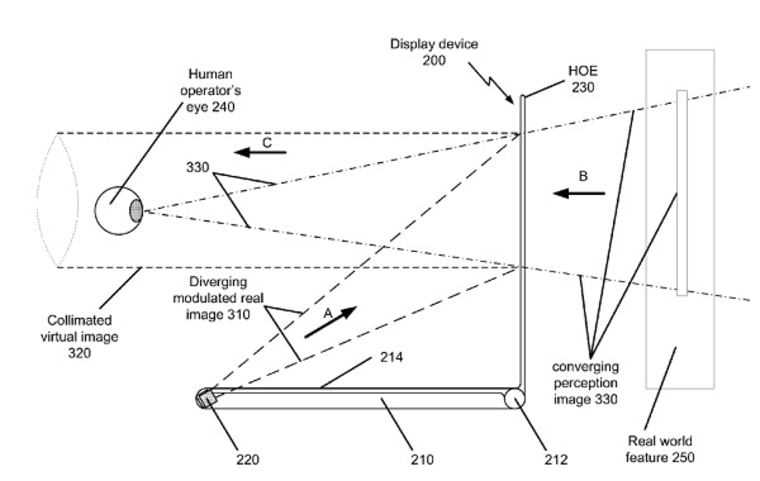Your future computer may be able to do more than just detect your gestures and last longer on a charge. Microsoft has filed a patent for transparent display technology for laptops and mobile devices that can actually project holographic images right before your eyes.
In the patent’s claims, Microsoft describes a projection device that would be “coupled to the mobile base for displaying the image,” which seems to be in reference to future cameras that will be built into devices. Additionally, the claims describe a transparent display that would come with a holographic optical element for directing images that are displayed by the projection device.
MORE: Don't be a Google Glasshole: 10 etiquette tips
The document describes various implementations of this type of technology, one of which could superimpose virtual images from augmented reality apps on to real-world environments. Microsoft hints that there could be a heads-up display accessory similar to Google Glass that would be used to navigate these apps.
“The mobile device may be used with pointing and telestration applications including but not limited to use as a portable heads-up display for an operator of the mobile device.”
The patent’s drawings depict a laptop with a projector in the keyboard deck. This component projects up through the notebook’s display panel and on to a surface beyond such as a wall. As shown in the drawing above, the user would look at the laptop’s display at the same angle and distance as you would when using a standard notebook, but the image would extend beyond the tangible screen.
This isn’t the first time we’ve heard of such plans from Microsoft, but the newly published patent shows that the company is pushing for this tech in laptops and mobile devices. Microsoft’s IllumiRoom concept for gaming details a similar system that would project images and scenes from the video game on your television onto the furniture and surfaces around you.
In a reportedly leaked Microsoft internal document from 2010, the company makes mention of an accessory called Kinect Shades that would accompany such a device, hinting that AR eyewear is in the works. Not too long ago, Microsoft posted a job listing that described telepresence technology for depicting virtual holograms in Skype conversations.
There’s no telling whether or not these technologies will hit the market, but the recently published patent is little short of a confirmation that Microsoft is diving deeper into perceptual computing.
